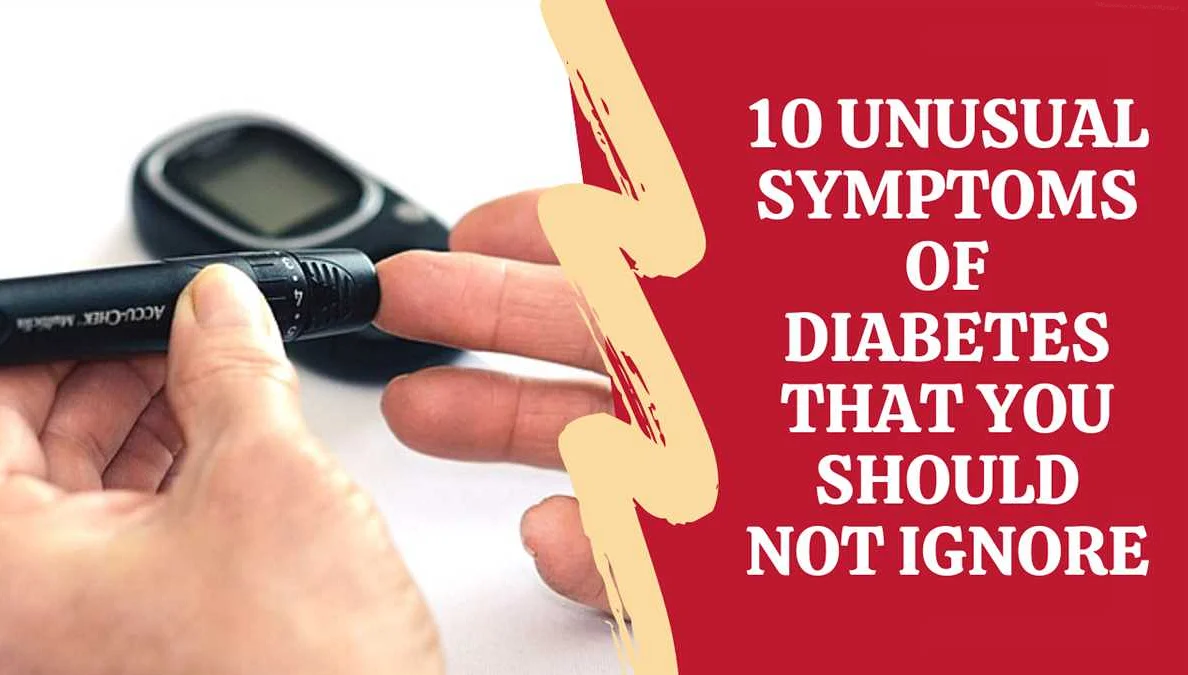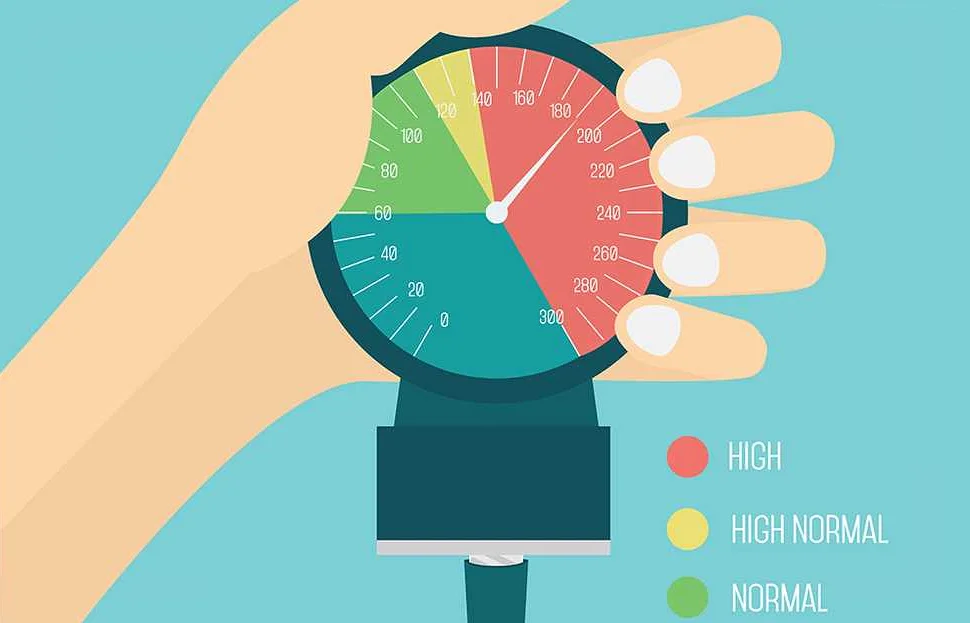5 Silent Symptoms of Diabetes That We Often Ignore
Содержимое
Discover the 5 silent symptoms of diabetes that are often overlooked. Learn how to recognize these early warning signs and take action for better health.
Diabetes is a chronic disease that affects millions of people worldwide. While many of us are familiar with the common symptoms of diabetes such as excessive thirst, frequent urination, and unexplained weight loss, there are some silent symptoms that often go unnoticed. These silent symptoms may not be as obvious, but they can still be early warning signs of diabetes.
One of the silent symptoms of diabetes is fatigue. Feeling tired and lacking energy can be attributed to a number of factors, but it can also be a sign of high blood sugar levels. When the body has trouble regulating blood sugar, it can lead to a constant feeling of fatigue and exhaustion. This symptom is often overlooked or brushed off as simply being overworked or stressed.
Another silent symptom of diabetes is frequent infections. High blood sugar levels can weaken the immune system, making it harder for the body to fight off infections. As a result, people with undiagnosed or uncontrolled diabetes may experience frequent infections, such as urinary tract infections, yeast infections, or skin infections. These infections can be recurring or slow to heal, and they should not be ignored.
In addition, blurred vision is another silent symptom of diabetes. High blood sugar levels can cause the lens of the eye to swell, leading to temporary changes in vision. If you notice that your vision is suddenly blurry or that you are having trouble focusing, it may be a sign of diabetes. Ignoring this symptom can have serious consequences for your eye health.
Unexplained weight gain is also a silent symptom of diabetes that is often overlooked. When the body is unable to effectively use insulin, it can lead to weight gain, especially around the abdomen. This weight gain is often gradual and can be attributed to a variety of factors, making it easy to ignore or dismiss.
Finally, frequent urination at night can be a silent symptom of diabetes. This symptom, known as nocturia, is often attributed to drinking too much fluid before bed or having an enlarged prostate. However, it can also be a sign of high blood sugar levels. If you find yourself waking up multiple times during the night to urinate, it may be worth discussing with a healthcare professional.
In conclusion, while the common symptoms of diabetes are well-known, there are also some silent symptoms that often go unnoticed. Fatigue, frequent infections, blurred vision, unexplained weight gain, and frequent urination at night are all signs that should not be ignored. If you are experiencing any of these symptoms, it is important to consult with a healthcare professional for proper diagnosis and treatment.
Understanding Diabetes

Diabetes is a chronic condition that affects how your body regulates blood sugar (glucose) levels. It occurs when your body either doesn’t produce enough insulin or can’t effectively use the insulin it produces. Insulin is a hormone that helps regulate the movement of glucose into your cells to be used as energy.
There are two main types of diabetes: type 1 and type 2. Type 1 diabetes is an autoimmune disease where the body’s immune system mistakenly attacks and destroys the insulin-producing cells in the pancreas. This results in a lack of insulin production. Type 2 diabetes, on the other hand, occurs when the body becomes resistant to the effects of insulin or doesn’t produce enough insulin to maintain normal blood sugar levels.
Both types of diabetes can lead to high blood sugar levels, which can cause various health complications over time. These complications include heart disease, stroke, kidney disease, nerve damage, eye problems, and foot problems.
Managing diabetes involves a combination of medication, lifestyle changes, and regular monitoring of blood sugar levels. Medications such as insulin injections or oral medications may be prescribed to help regulate blood sugar levels. Lifestyle changes, such as adopting a healthy diet, exercising regularly, and maintaining a healthy weight, can also play a significant role in managing diabetes.
Regular monitoring of blood sugar levels is crucial for people with diabetes to ensure that their levels are within a target range. This can be done using a blood glucose meter or continuous glucose monitoring system. Monitoring helps individuals make informed decisions about their diet, medication, and physical activity to keep their blood sugar levels under control.
It’s important for individuals to be aware of the silent symptoms of diabetes and seek medical attention if they experience any concerning symptoms. By understanding diabetes and its potential complications, individuals can take proactive steps to manage their condition and live a healthy life.
| Autoimmune disease | Insulin resistance or inadequate insulin production |
| Requires insulin injections for treatment | May be managed with lifestyle changes and oral medications |
| Typically diagnosed in childhood or adolescence | More commonly diagnosed in adults |
| Accounts for about 5-10% of diabetes cases | Accounts for about 90-95% of diabetes cases |
Importance of Early Detection

Early detection of diabetes is crucial for effective management and prevention of complications. Ignoring the silent symptoms of diabetes can lead to long-term health problems and reduced quality of life.
Diabetes is a chronic condition that affects the body’s ability to regulate blood sugar levels. Without proper treatment and management, diabetes can lead to serious complications such as heart disease, kidney damage, nerve damage, and vision problems.
One of the main reasons why early detection is important is because diabetes often progresses silently and without noticeable symptoms. Many people may not realize they have diabetes until they experience more severe symptoms or complications.
By detecting diabetes early, individuals have a better chance of managing their condition through lifestyle changes, medication, and regular monitoring of blood sugar levels. Early intervention can help prevent or delay the onset of complications and improve overall health outcomes.
In addition, early detection allows healthcare professionals to provide appropriate education and support to individuals with diabetes. This includes helping them understand the importance of maintaining a healthy diet, staying physically active, monitoring blood sugar levels, and taking prescribed medications.
Regular screenings and check-ups can help identify individuals at risk for diabetes or those who may already have the condition but are unaware. It is recommended that individuals with risk factors for diabetes, such as obesity, family history, or physical inactivity, undergo regular screenings to ensure early detection.
| 1. Stabilizing blood sugar levels |
| 2. Preventing or delaying complications |
| 3. Improving overall health outcomes |
| 4. Providing appropriate education and support |
| 5. Enabling timely intervention and management |
In conclusion, early detection of diabetes is essential for effective management and prevention of complications. It is important to be aware of the silent symptoms of diabetes and seek medical advice if any risk factors or symptoms are present. Regular screenings and check-ups can help ensure early detection and enable timely intervention for better health outcomes.
Silent Symptom 1: Unexplained Weight Loss
Unexplained weight loss can be a silent symptom of diabetes that is often ignored. If you have noticed a significant drop in your weight without any changes in your diet or exercise routine, it could be a sign of diabetes.
When your body is unable to properly utilize glucose for energy, it begins to break down fat and muscle for fuel instead. This can lead to unexplained weight loss, even if you are eating a normal amount of food.
If you have noticed a sudden and unintentional weight loss, it is important to consult a healthcare professional. They can help determine the underlying cause and perform tests to check your blood sugar levels.
Don’t ignore unexplained weight loss as it could be an early warning sign of diabetes. Early diagnosis and treatment are crucial for managing the condition and preventing further complications.
Silent Symptom 2: Persistent Thirst
One of the silent symptoms of diabetes that is often ignored is persistent thirst. If you find yourself constantly reaching for a drink and feeling thirsty even after drinking plenty of fluids, it could be a sign of diabetes.
Diabetes can cause your body to lose fluids at a faster rate, leading to dehydration and an increased feeling of thirst. This is because high blood sugar levels can affect the kidneys’ ability to reabsorb water, resulting in more urine production and fluid loss.
If you notice that you’re urinating more frequently and experiencing an unquenchable thirst, it’s important to speak with your doctor and get your blood sugar levels checked. Ignoring the persistent thirst could lead to further complications and worsen your diabetes control.
In addition to persistent thirst, other common symptoms of diabetes include increased hunger, unexplained weight loss, fatigue, and frequent urination. It’s important to pay attention to these silent symptoms and get them evaluated to prevent further health complications.
Silent Symptom 3: Blurred Vision
One of the lesser-known symptoms of diabetes is blurred vision. When blood sugar levels are consistently high, it can cause the lens in your eye to swell, leading to blurry vision or difficulty focusing. This can occur in one or both eyes and may come and go throughout the day.
If you notice that your vision has become blurry, it’s important to have your blood sugar levels checked by a healthcare professional. Ignoring this symptom can lead to more serious eye problems, such as diabetic retinopathy, which can cause permanent vision loss.
In addition to blurred vision, other eye symptoms may include seeing floaters or dark spots, experiencing double vision, or feeling like your eyes are constantly dry. These symptoms should not be ignored and should prompt you to seek medical attention.
If diabetes is diagnosed early and managed effectively, it is possible to prevent or delay the development of diabetic eye complications. This can be done through proper blood sugar control, regular eye exams, and early treatment of any eye problems that arise.